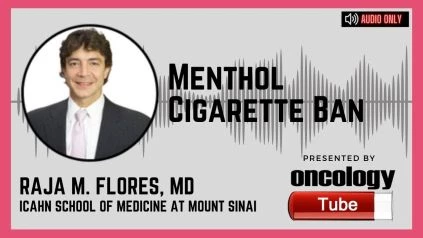Raja M. Flores, MD, Professor and System Chair, Thoracic Surgery at Icahn School of Medicine at Mount Sinai. In this video, he speaks about the Menthol Cigarette Ban.
The US Food and Drug Administration announced today proposed product guidelines that would restrict menthol as a defining taste in cigarettes and all characterizing flavors (other than tobacco) in cigars. By reducing juvenile experimentation and addiction and increasing the number of smokers who quit, these initiatives have the potential to considerably reduce disease and death from combusted tobacco product use, the main cause of preventable death in the United States.
These proposed product standards are based on clear science and evidence demonstrating the addictiveness and harm of these products, and they build on the 2009 Family Smoking Prevention and Tobacco Control Act, which prohibited all distinguishing flavors (other than tobacco and menthol) in cigarettes. They are also an important component of the Administration’s relaunched Cancer Moonshot, which aims to reduce cancer deaths by at least 50% over the next 25 years; tobacco use is a leading cause of cancer and death from cancer, accounting for approximately 30% of all cancer deaths in the United States.
A menthol product regulation would have a considerable influence on public health.
Menthol is a flavor enhancer with a minty taste and scent that helps to lessen the irritation and harshness of smoking. This boosts the attractiveness of menthol cigarettes and makes them more appealing to young people and adults. Menthol also interacts with nicotine in the brain, increasing its addictive properties. The flavor, sensory effects, and interaction with nicotine in the brain of kids who start using menthol cigarettes increases the likelihood that they will move to regular usage. Menthol also makes it more difficult for smokers to quit.
In 2019, there were more than 18.5 million active menthol cigarette smokers ages 12 and older in the United States, with youth, young adults, African Americans, and other racial and ethnic groups having particularly high rates of consumption. If menthol cigarettes were no longer accessible in the United States, published modeling studies predicted a 15% reduction in smoking within 40 years. These studies also predict that over the course of 40 years, 324,000 to 654,000 smoking-related deaths (92,000 to 238,000 among African Americans) could be averted.

